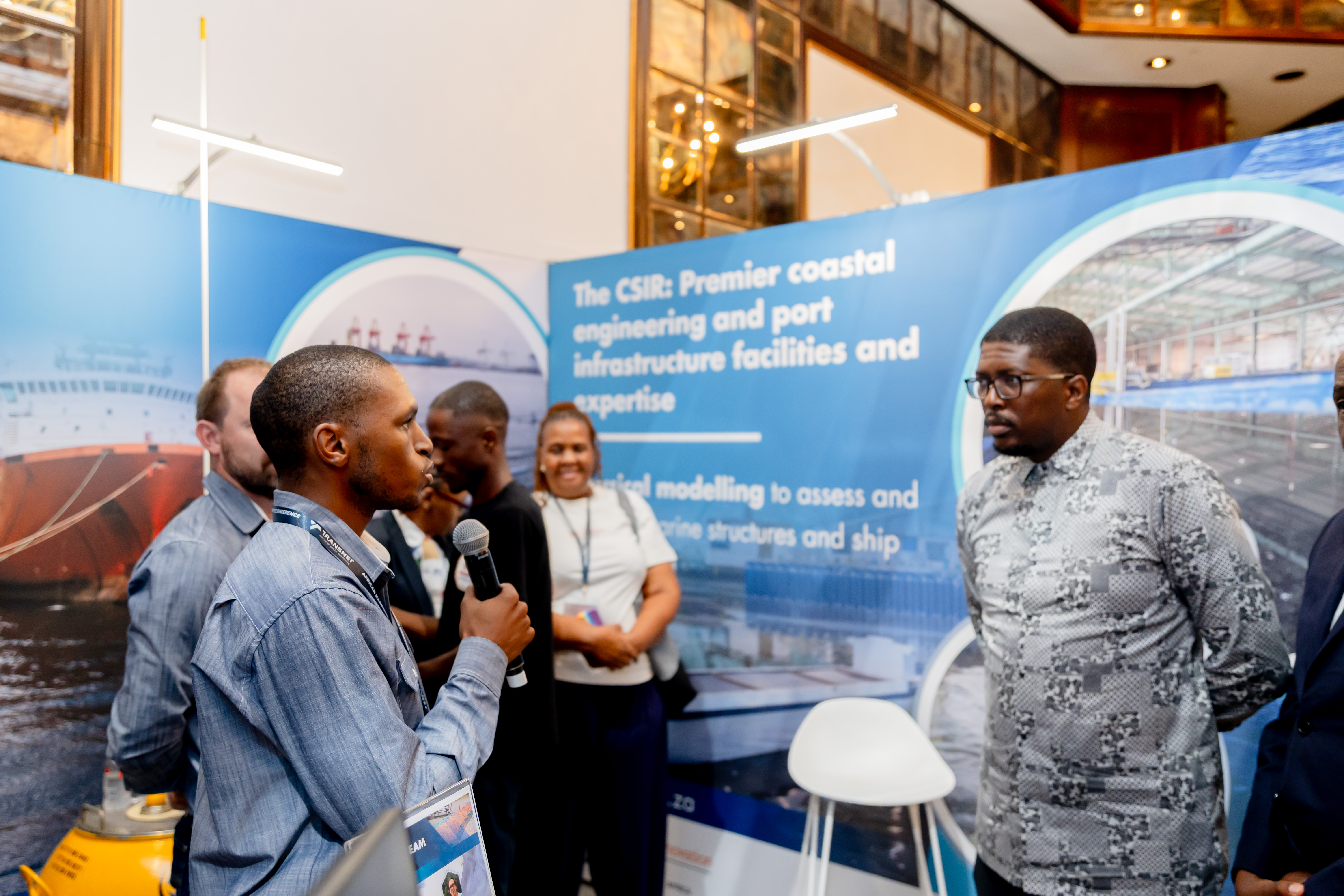#TeamCSIR in shipshape form for African Harbour Masters’ Committee Conference 2025
Navigating a course towards blue economies and making positive changes in ports was the core concern at this year’s African Harbour Masters’ Conference. Held from 2 to 4 April 2025 in Cape Town, the CSIR participated in high-level discussions, exhibitions and networking opportunities to foster collaboration and drive sustainable growth within the port and maritime sector. Joining 150 conference delegates, #TeamCSIR showcased its advanced capabilities to provide smart and innovative solutions for sustainable port operations in Africa and beyond.
During the panel sessions, the CSIR made the most of its multidisciplinary insights, showcasing how environmental scientists and engineers can leverage technologies and data-driven solutions to improve port operations.

CSIR Research Group Leader Steven Weerts addressed how ports can contribute to the 17 Sustainable Development Goals of the United Nations. He drew on results from a “Toolkit for Sustainable Port Development,” developed by the CSIR for UNEP and piloted at the Port of Ngqura and the Port of Victoria in the Seychelles to illustrate his point. Weerts also participated in the Annual General Meeting of the Port Management Association of Eastern & Southern Africa, where he provided an update on progress in implementing this toolkit in the West Indian Ocean ports.
Evolving digital technology requires adaptability and versatility. CSIR Research Group Leader Eugene Mabille unpacked the expertise that the CSIR provides to South Africa’s eight national ports and international clients. He outlined the various innovative features and capacity of the Integrated Port of Operation Support System, a tool developed by the CSIR that functions as a decision support system for ports. The system is used by Transnet National Port Authority’s network of ports, where it provides real-time measured and forecasted data to assist with safe ship movement and optimise port operations. Mabille provided an example of physical modelling completed for the Port of Cape Town by the CSIR, highlighting the essential infrastructure that the organisation utilises to ensure factors such as climate change and weather conditions are incorporated in developing future smart ports.
Topics of climate change and environmental sustainability gained prominence as ports in Africa are steering the maritime and shipping industry towards a decarbonised future. Scenarios and case studies on the impact of artificial intelligence, net zero and a carbon-free shipping sector were deliberated at length, and included discussion on safety standards, financial resources and investments and infrastructural needs for African ports.
On the final day of the conference, delegates were taken on a field trip to gain experiential and contextual experience of operations at the Port of Cape Town. They visited the Cape Town Cruise Terminal, which is operated by the V&A Waterfront, the Makers Landing food business incubator, and the Transnet National Port Authority Maritime Training Centre, experiencing the multi-use nature of ports. The CSIR received an award of recognition for its support and engagement at the African Harbour Masters Conference during a gala dinner at the event.


